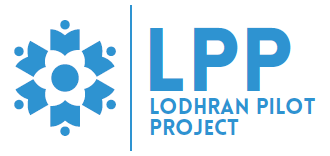Dr. Akhtar Hameed Khan was born on 15 July 1914 in Agra (British India). He completed his early education in India and graduated from the Meerut College in 1932. He studied literature, history and philosophy for his graduation. Dr. Khan continued his studies and was awarded a Master of Arts in English Literature from the Agra University in 1934. He worked as a lecturer at the Meerut College before joining the Indian Civil Service (ICS) in 1936. In 1950, Dr. Khan migrated to Pakistan to teach at the Islamia College, Karachi. In the same year, he was invited by the Government of Pakistan to take charge as Principal of the Comilla Victoria College in East Pakistan, a position he held until 1958. During this time (1950–58), he also served as President of the East Pakistan Non-Government Teachers’ Association.
In 1980, Dr. Khan moved to Karachi and started working for the improvement of sanitary conditions in suburban areas of the city. He laid the foundations of the Orangi Pilot Project (OPP) for the largest squatter community of Orangi in the city. He continued to work for rural communities around Karachi, and also helped to develop the Agha Khan Rural Support programme. Over time, OPP became a model for participatory bottom-up development initiatives.
In view of his meritorious services, Dr. Akhtar Hameed Khan received the following civil awards:
• Jinnah Award (Posthumous, 2004) for services to people as founder of the Orangi Pilot Project.
• Nishan-e-Imtiaz (Posthumous, 2001) for services to the community.
• Ramon Magsaysay Award (31 August 1963, Manila, Philippines) for services to rural development.
• Sitara-e-Pakistan (1961) for pioneering work in rural development.
Under the guidance of Dr. Khan, the sanitation efforts of the Orangi Pilot Project (OPP), through community mobilization, paved the way to enhance social development, especially in terms of community owned sanitation. Later, Dr. Khan deputed Mr. Hafeez Arain to replicate OPP model of community owned rural sanitation. It is in this context that, under the leadership of Mr. Jahangir Khan Tareen, the Lodhran Pilot Project (LPP) was conceived and initiated in 1999. Over the years, LPP has grown into a well-established brand, which focuses on rural sanitation in southern Punjab.
It may be noted that the LPP model was presented during Third SACOSAN held at New Dehli in November 2008 and was widely appreciated by participants from all the South Asian countries.






